If you’re still manually chasing leads, sending follow-ups, and updating CRM fields, we need to talk. AI sales assistant tools are no longer optional—they’re your secret weapon to boost conversions and save hours every week.
According to HubSpot’s 2024 Sales Trends Report, 78% of sales teams using AI tools hit or exceed their quotas. That’s not a small win—it’s a competitive edge.
In this guide, we’ll walk you through the top 6 sales assistant AI tools that automate the boring stuff, help your reps close more deals, and make your sales team look like rockstars (minus the tour bus).
What Is a Sales Assistant AI Tool?

A sales assistant AI is smart software that helps sales teams do their job faster and better. Instead of spending hours on data entry, follow-up emails, or updating CRMs, this AI does it for you.
It uses machine learning and natural language processing to understand what leads want and when to reach out. Some sales assistant AI tools even support lead generation by identifying new contacts based on buyer behavior.
Tools like this can even analyze sales data, help with lead scoring, and give instant insights to your sales reps. It’s like having a helpful teammate who never forgets. If you want to save time and close more deals, a sales assistant AI is worth it.
Key Features to Look for in an AI Sales Assistant

When evaluating a sales assistant AI, look for the following features: smart automation, CRM integration, and clear analytics.
1. Automates Follow-Ups Without Sounding Robotic
Writing emails manually after every meeting? That’s exhausting. An AI assistant can send follow up emails instantly—and still sound like a real person. Generative AI features are now being embedded in sales assistant tools to craft hyper-personalized emails and sales pitches.
- It tracks every sales call and suggests the best time to reconnect.
- It reduces time consuming admin work like copy-pasting email templates.
- Some tools even schedule meetings and update your sales software automatically.
Why it matters: According to HubSpot, automated follow-ups can increase reply rates by 25–42%.
2. Smart Lead Scoring Based on Real Buyer Behavior

Don’t waste time chasing leads that won’t convert. A good AI sales assistant uses predictive analytics and buyer behavior data to rank your leads. These tools can forecast which leads are most likely to convert, helping your team focus their efforts where it matters most.
- It reads through sales data, lead profiles, and past customer interactions.
- It highlights high quality leads so your team knows who to focus on.
- It updates lead scores in real time, using machine learning.
Why it matters: Better lead scoring = less guessing and more deals closed.
3. Natural Language Processing That Understands Context
The best AI doesn’t just read—it understands. Thanks to natural language processing, sales assistant AI tools can understand what’s being said in calls and emails.
- They analyze your sales reps’ conversations to find gaps or buying signals.
- Some tools give instant insights, detect sentiment, and suggest what to say next.
- You can also get post meeting summaries, so no notes are missed.
- AI can provide real-time coaching to sales representatives, enhancing their effectiveness during calls.
Why it matters: You sell better when you understand your buyer—and your AI helps you do exactly that.
4. Provides Instant Insights from Sales Data

A smart sales assistant AI doesn’t just collect numbers—it helps you understand them. These tools dig into your sales data, spot trends, and tell you what’s working (and what’s not) in real time. No more guessing games.
AI can analyze large datasets quickly to provide actionable insights for sales teams, ensuring your strategies are always data-driven.
- Get instant insights on which leads are most active.
- See which emails are driving clicks and replies.
- Some tools even flag sales opportunities you might miss.
- You don’t need to be a data expert—it breaks things down clearly.
According to McKinsey, companies that use AI-powered tools for insights increase sales by up to 20%. That’s real impact.
Why it matters: When you have the right info at the right time, your sales team can take action faster—and smarter.
5. Reduces Time-Consuming Tasks with AI-Powered Tools
Let’s be honest—salespeople spend too much time on busywork. That’s where AI assistant tools shine. They take over the boring stuff so your team can focus on selling. Sales professionals using AI tools to handle administrative tasks save up to two hours a day, giving them more time to close deals.
- Automate follow-up emails and scheduling meetings.
- Skip manual data entry—the AI updates your CRM for you.
- Get automatic post meeting summaries without typing a word.
- It even helps with lead management by sorting and tagging prospects.
Salesforce reports that sales reps spend only 28% of their week actually selling. A good AI sales assistant gives that time back.
Why it matters: Less admin. More deals. Everyone wins.
Comparison of Top AI Sales Assistant Software
The Top 6 Sales Assistant AI Tools That Drive More Deals
1. Alore – Best All-in-One AI Assistant for Sales Reps
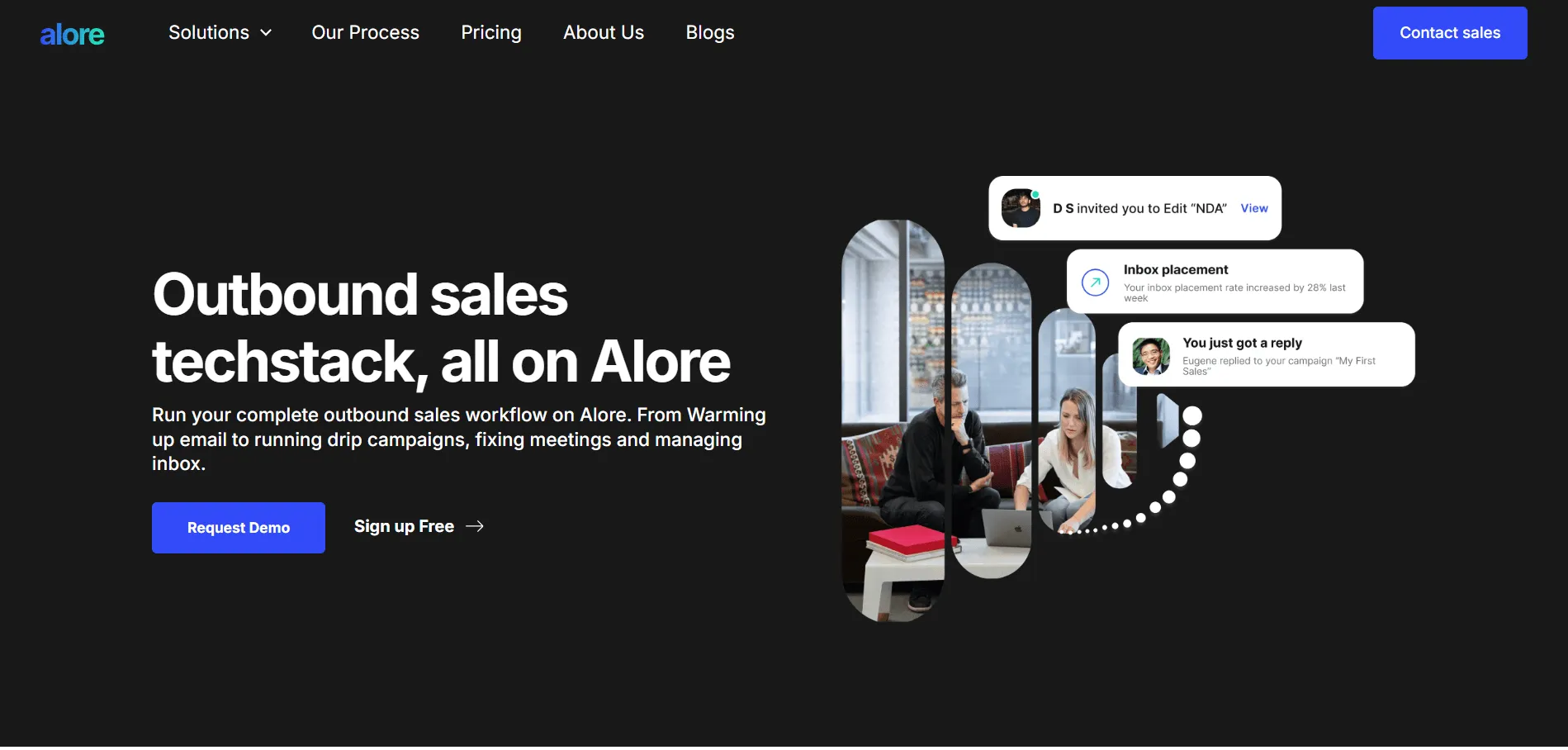
Alore is an AI-powered sales assistant software that helps you send better emails, close more deals, and save hours. Whether you're a solo founder or part of a larger sales team,
Alore is built to scale with you. Its warm-up engine, drip campaigner, and advanced analytics replace what most reps do manually—and do it better.
Key Features:
- Email Warm-Up Tool: Prevents your emails from landing in spam folders using real-time domain health checks and automatic follow-up emails.
- Smart Campaign Builder: Send personalized sequences with delays, names, and company tags using variables like {{firstName}}.
- Actionable Insights: View open, reply, and bounce rates at a glance.
- AI-Powered Scheduling: Distributes email volume across time zones with auto-rotation.
- Drip Campaign Dashboard: Manage multiple industries and sequences at once.
- Reply Tracking: Track conversations, manage replies, and follow up in real time.
- Advanced Security: Complies with Google API and protects user data.
How to Use It:
- Upload your contact list.
- Pick your campaign type (marketing, consulting, or IT).
- Customize your emails using placeholders.
- Set warm-up and delivery schedules.
- Let Alore handle data entry, tracking, and engagement.
Pricing: Alore offers three pricing plans to cater to various business needs:
- Starter Plan: $19/month – Includes basic features like email warming and up to 5 unique domains for warming up.
- Professional Plan: $40/month – Offers advanced features, including up to 20 unique domains for warming up and a higher volume of emails.
- Growth Plan: $49/month – Provides comprehensive features for scaling outreach and enhanced analytics.
Best Use Case: Startups, solopreneurs, and scaling sales teams that want predictive analytics, follow-ups, and AI insights in one tool.
- G2 Rating: ⭐ 4.7 out of 5 — Users love its simplicity, automation, and built-in sales workflows.
Pros:
- Built for sales, not just marketing.
- Easy to set up and scale.
- Visual charts and clear sales data insights.
Cons:
- UI could feel slightly complex for first-time users.
- Heavy email volume may need fine-tuning.
2. Apollo AI – Best for Cold Outreach and Lead Scoring
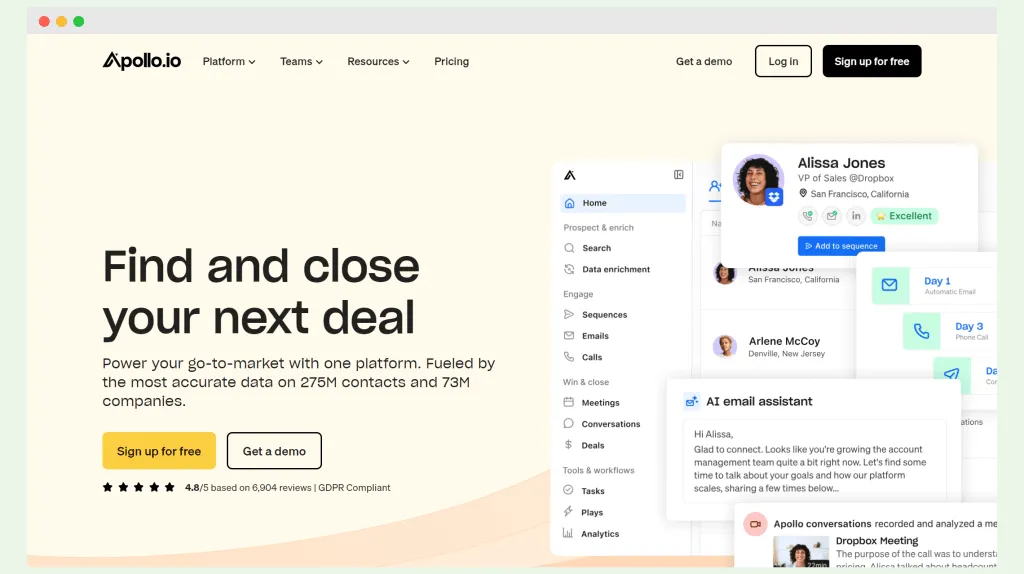
Apollo AI is a sales assistant software that helps you:
- Find potential customers (leads)
- Send emails and messages automatically
- Score leads to know who is most likely to buy
- Manage your sales pipeline
It's like having a virtual assistant that works 24/7 to help you close more deals.
Key Features:
- Lead Scoring: Apollo AI uses AI to analyze vast amounts of sales data and rank leads based on their behavior, helping you focus on the most promising prospects.
- Cold Outreach: Automate your email campaigns with personalized messages, making your outreach more effective.
- Sales Intelligence: Gain valuable insights into your leads, including their company information and recent activities.
- AI-Powered Tools: Utilize AI-powered tools to automate tasks like follow-up emails and scheduling meetings.
- CRM Integration: Seamlessly integrate with your existing CRM to keep all your customer interactions in one place.
How to Use Apollo AI:
- Sign Up: Create an account on Apollo's website.
- Set Up Your Profile: Add your company details and connect your email.
- Import Leads: Upload your existing lead data or use Apollo's database to find new leads.
- Create Sequences: Set up email sequences for cold outreach.
- Monitor Performance: Track how your emails are performing and adjust as needed.
Pricing:
- Free Plan: Limited features, suitable for testing the platform.
- Basic Plan: $49/user/month – Includes more email credits and basic automation.
- Professional Plan: $99/user/month – Offers advanced features like AI-powered lead scoring and unlimited sequences.
- Organization Plan: $149/user/month – Designed for larger teams with advanced needs.
Best Use Case: Apollo AI is best for sales teams looking to:
- Automate their cold outreach
- Identify high-quality leads
- Streamline their sales process
- Gain insights into customer interactions
G2 Rating: Apollo AI has a G2 rating of 4.7 out of 5, based on over 8,000 reviews. Users praise its ease of use and powerful features.
Pros:
- User-friendly interface
- Powerful AI features
- Comprehensive lead database
- Seamless CRM integration
Cons:
- Learning curve for advanced features
- Some features are only available in higher-tier plans
3. Clari Copilot – Best AI Assistant for Sales Calls & Post-Meeting Summaries

Clari Copilot is an AI-powered tool that records, transcribes, and analyzes sales calls. It helps sales reps by providing real-time insights and summaries, making it easier to follow up with clients and improve future calls.
Additionally, it can automatically record and transcribe calls, making them searchable for easy reference.
Key Features:
- Call Recording & Transcription: Automatically records and transcribes sales calls for easy review.
- Smart Summaries: Generates concise summaries highlighting key points and action items.
- Real-Time Coaching: Offers live feedback during calls to help reps improve their communication.
- CRM Integration: Seamlessly integrates with popular CRM systems to streamline workflows.
- Analytics Dashboard: Provides insights into sales performance and customer interactions.
How to Use Clari Copilot:
- Setup: Integrate Clari Copilot with your existing sales tools and CRM.
- Call Engagement: During sales calls, Clari Copilot records and provides real-time feedback.
- Post-Call Analysis: After the call, review the transcription and smart summary to identify key takeaways.
- Follow-Up: Use the insights to craft personalized follow-up emails and plan next steps.
Pricing: Clari Copilot offers two pricing tiers:
- Accelerator Plan: $1,080 per user per year. Includes core features like call recording, transcription, and smart summaries.
- Enterprise Plan: $1,320 per user per year. Adds advanced features such as API access, dedicated customer success manager, and enhanced security options.
Best Use Case: Clari Copilot is ideal for sales teams looking to enhance their sales calls and improve follow-up strategies. It's especially beneficial for organizations aiming to streamline their sales process and gain actionable insights from customer interactions.
- G2 Rating: Clari Copilot has a strong reputation among users, with a G2 rating of 4.6 out of 5. Users appreciate its intuitive interface and the value it brings to sales operations.
Pros:
- Enhances sales call effectiveness with real-time feedback.
- Provides clear and concise post-meeting summaries.
- Integrates smoothly with existing CRM systems.
Cons:
- May require time for team members to adapt to new workflows.
- Premium features are only available in the higher-tier plan.
4. Drift – Best Virtual Assistant for Website Chat and Lead Qualification

Drift is a conversational AI platform that enables businesses to interact with website visitors instantly. It uses AI-powered chatbots to answer questions, schedule meetings, and guide potential customers through the sales process.
Key Features:
- AI Chatbots: Engage visitors with automated, personalized messages.
- Live Chat: Real-time conversations with sales reps.
- Lead Qualification: Automatically assess and prioritize leads.
- Meeting Scheduling: Integrate with calendars to book appointments.
- Sales Intelligence: Gather data to understand customer behavior.
How to Use Drift:
- Install: Add Drift to your website.
- Customize: Set up chatbots with your branding and messaging.
- Integrate: Connect with your CRM and calendar tools.
- Engage: Start interacting with visitors and qualifying leads.
Pricing: Drift offers several pricing plans:
- Premium: Starting at $2,500 per month, includes live chat, custom chatbots, and meeting scheduling.
- Advanced: Custom pricing, adds features like Fastlane and A/B testing.
- Enterprise: Tailored solutions for large organizations.
Best Use Case: Drift is ideal for businesses aiming to enhance their website's engagement and streamline lead qualification. It's particularly useful for sales teams looking to automate initial interactions and focus on high-quality leads.
- G2 Rating: Drift has a G2 rating of 4.4 out of 5, based on user reviews highlighting its effectiveness in conversational marketing and ease of use.
Pros:
- Real-time engagement with website visitors.
- Automated lead qualification saves time.
- Seamless integration with existing tools.
Cons:
- Higher starting price may not suit small businesses.
- Some users report a learning curve with advanced features.
5. Salesloft Rhythm – Best for Automating Follow-Ups and Scheduling

Salesloft Rhythm is an AI-powered tool that assists sales teams in managing their daily tasks. It analyzes customer interactions and sales data to suggest the next best actions, helping sales reps stay on top of their follow-ups and meetings.
Key Features:
- Automated Follow-Ups: Rhythm automates the process of sending follow-up emails, ensuring timely communication with prospects.
- Meeting Scheduling: It integrates with your calendar to schedule meetings seamlessly, reducing the back-and-forth often associated with setting appointments.
- Task Prioritization: Using AI, Rhythm identifies which tasks are most critical, helping sales reps focus on activities that are more likely to close deals.
- Integration with Sales Tools: Rhythm works well with other sales tools, creating a cohesive sales process.
How to Use Salesloft Rhythm
- Set Up: Integrate Rhythm with your existing sales tools and calendar.
- Daily Dashboard: Each day, Rhythm provides a list of prioritized tasks based on customer interactions and sales data.
- Automate: Use the tool to automate follow-up emails and schedule meetings directly from the dashboard.
- Monitor: Track your progress and adjust your sales strategies based on the insights provided by Rhythm.
Pricing: Salesloft offers various pricing packages tailored to different business needs. For detailed pricing information, it's best to contact Salesloft directly or visit their official website.
- Best Use Case: Salesloft Rhythm is ideal for sales teams looking to streamline their follow-up processes and improve meeting scheduling efficiency. It's particularly beneficial for teams aiming to enhance their sales strategies through AI-powered insights.
- G2 Rating: Salesloft Rhythm has received positive reviews on G2, with users praising its user-friendly interface and effectiveness in managing sales tasks. For the most recent ratings and reviews, please refer to G2's website.
Pros:
- Automates repetitive tasks, saving time.
- Provides AI-driven insights for better decision-making.
- Integrates seamlessly with other sales tools.
Cons:
- May require some time to set up and integrate with existing systems.
- Pricing details are not publicly listed, requiring direct contact for information.
6. Outreach AI – Best for Predictive Deal Management

Outreach AI is a powerful sales assistant AI tool that helps sales teams manage deals more effectively. It uses artificial intelligence to analyze your sales data and predict which deals are most likely to close. This means you can focus on the right opportunities and improve your sales process.
Key Features:
- Smart Deal Assist: Provides insights into your deals, helping you understand which ones need attention.
- Deal Grid: Gives a clear view of all your deals in one place.
- Deal Health Score: Shows the likelihood of a deal closing successfully.
- Activity History: Tracks all interactions with a lead, ensuring your sales team stays informed.
- CRM Integration: Works seamlessly with your existing sales software.
How to Use Outreach AI:
- Connect Your CRM: Integrate Outreach AI with your current sales assistant software.
- Monitor Deals: Use the Deal Grid to keep an eye on all ongoing deals.
- Focus on High-Value Leads: Utilize the Deal Health Score to prioritize high-quality leads.
- Review Activity History: Ensure your sales reps are up-to-date with all customer interactions.
- Automate Tasks: Let Outreach AI handle routine tasks, freeing up time for your team.
Pricing: Outreach AI offers various pricing plans based on your needs. While exact pricing details are available upon request, it's designed to provide value for both small and large teams.
- Best Use Case: Outreach AI is ideal for sales managers and sales leaders looking to streamline their sales workflows. By providing valuable insights into each deal, it helps in making informed decisions and closing more deals efficiently.
- G2 Rating: Outreach AI has received positive feedback on G2, with users praising its effectiveness in managing deals and improving the sales pipeline.
Pros:
- Provides clear insights into deal health.
- Integrates well with existing sales tools.
- Helps in qualifying leads effectively.
- Automates routine tasks, saving time.
Cons:
- May require time to fully integrate with existing systems.
- Pricing details are not immediately transparent.
How to Choose the Right AI Sales Assistant Software for Your Team

1. Match Features with Your Sales Workflow
Not every team works the same way. So your AI sales tools must fit your entire process. Identifying the key issues faced by a sales team is crucial when selecting AI sales software, as it ensures the tool addresses your specific challenges effectively.
Look for tools that offer:
- Customizable workflows based on your team's size and style
- Automate tasks like emails, meeting reminders, and follow-ups
- Simple integrations with your sales software or CRM
Your assistant should feel like a team player—not a stranger who interrupts your flow.
2. Look for AI That Feels Human, Not Robotic
A great AI assistant doesn’t sound like a machine. It sounds like you.
What to prioritize:
- Natural language processing to handle live chats and customer interactions
- Smart sentiment analysis to read tone and emotion
- Conversational intelligence that adapts to each user
This helps the tool deliver a human touch—so your leads feel heard, not handled.
3. Prioritize Tools That Deliver Real-Time Insights

What good is an assistant if it can’t provide accurate, fast insights? A good AI sales assistant should include real-time data analytics capabilities to analyze sales data and take immediate action, ensuring your team stays ahead in a competitive market.
Make sure the tool can:
- Analyze historical data and sales opportunities
- Run predictive analytics for better deal tracking
- Highlight key information in your pipeline
Bonus: The best assistants include post meeting summaries and AI powered meetings that keep your whole team on the same page.
4. Make Sure It Scales with Your Team
Your sales assistant AI should grow as your team grows. What works for five reps today should still work when you have fifty. AI tools equipped with machine learning can continuously improve their accuracy and effectiveness over time, adapting to your evolving needs.
Don’t just pick what looks fancy. Ask:
- Can it handle more users without slowing down?
- Does it support role-based access for sales managers and new team members?
- Does it fit into your go to market plan?
Many tools offer different pricing as you scale, but not all offer standalone functionality for advanced users. So look closely before you choose.
Pro Tip: Check if the software has user limits or charges extra for more integrations later.
5. Evaluate the Support, Integrations, and UI
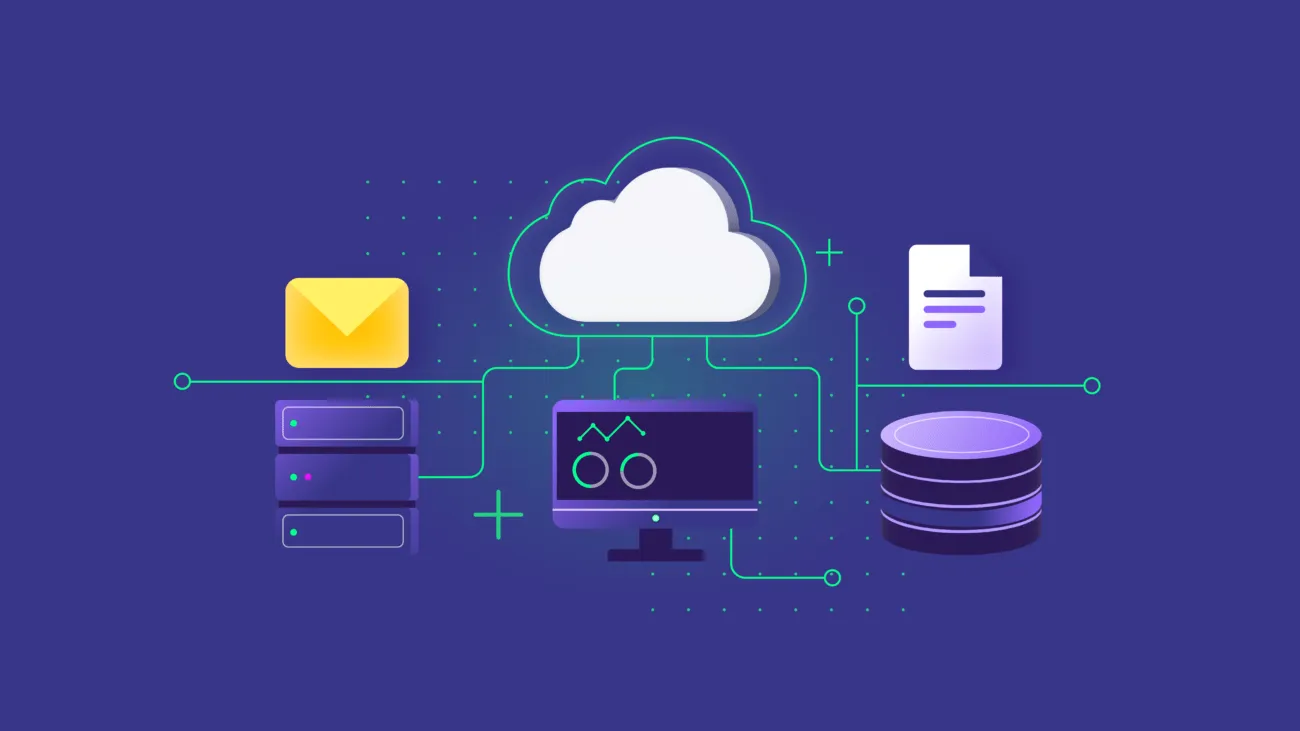
Even the best tools are useless if your team can't use them. The right AI sales assistant should feel like a helpful partner, not a puzzle. Good AI sales tools must have seamless CRM integration to prevent data issues and ensure smooth workflows.
Look for these key features:
- A clean, easy-to-use interface
- Chat and email support that replies fast
- Native integrations with your sales software, CRM, or email tools
- Video tutorials and a help center
A good user experience should include real people. That’s the human touch many sales tools miss. You don’t want your reps stuck waiting for support on a busy sales day.
6. Check for a Strong Track Record
Before you commit, ask yourself: Does this tool work for others like us?
Look for:
- Real product demos you can try
- Customer reviews that sound real—not just 5 stars with no context
- Case studies from sales teams in your industry
- Proven ability to provide accurate forecasts or analyze conversations from calls and meetings
Top tools often include AI sales agent capabilities that learn from past sales data and adjust. That’s not magic—it’s good tech trained on historical data.
FAQs

1. Which is the best AI assistant for sales?
- Top-rated tools like Alore, Apollo AI, and Clari Copilot are leading choices in 2025, depending on your team size and workflow. Look for features like lead scoring, automated follow-ups, and sales intelligence.
2. Can a sales assistant AI tool replace manual follow-ups and data entry?
- Yes, many AI sales assistant tools automate repetitive tasks like sending follow up emails, updating lead data, and scheduling meetings—freeing up time for your sales reps to close more deals.
3. Is sales assistant AI software suitable for small teams or startups?
- Absolutely. Many tools offer a free plan or scalable pricing, making them ideal for startups and growing sales teams that want powerful automation without a large upfront cost.
4. Does a sales assistant AI integrate with CRM and email tools?
- Yes, most modern AI sales tools integrate with platforms like HubSpot, Salesforce, Gmail, and Slack to streamline the entire sales workflow.
5. What’s the difference between a sales assistant AI and a virtual assistant?
- A sales assistant AI is built specifically for sales teams, with features like sales call analysis, follow-up automation, and deal tracking—unlike general virtual assistants that handle admin tasks.
Sales assistant AI tools are no longer a luxury—they're essential for modern sales teams. From automating follow-ups to scoring leads and analyzing conversations, these tools help you save time, close more deals, and work smarter. Whether you're a startup or a large team, choosing the right AI sales assistant can transform your entire sales process.

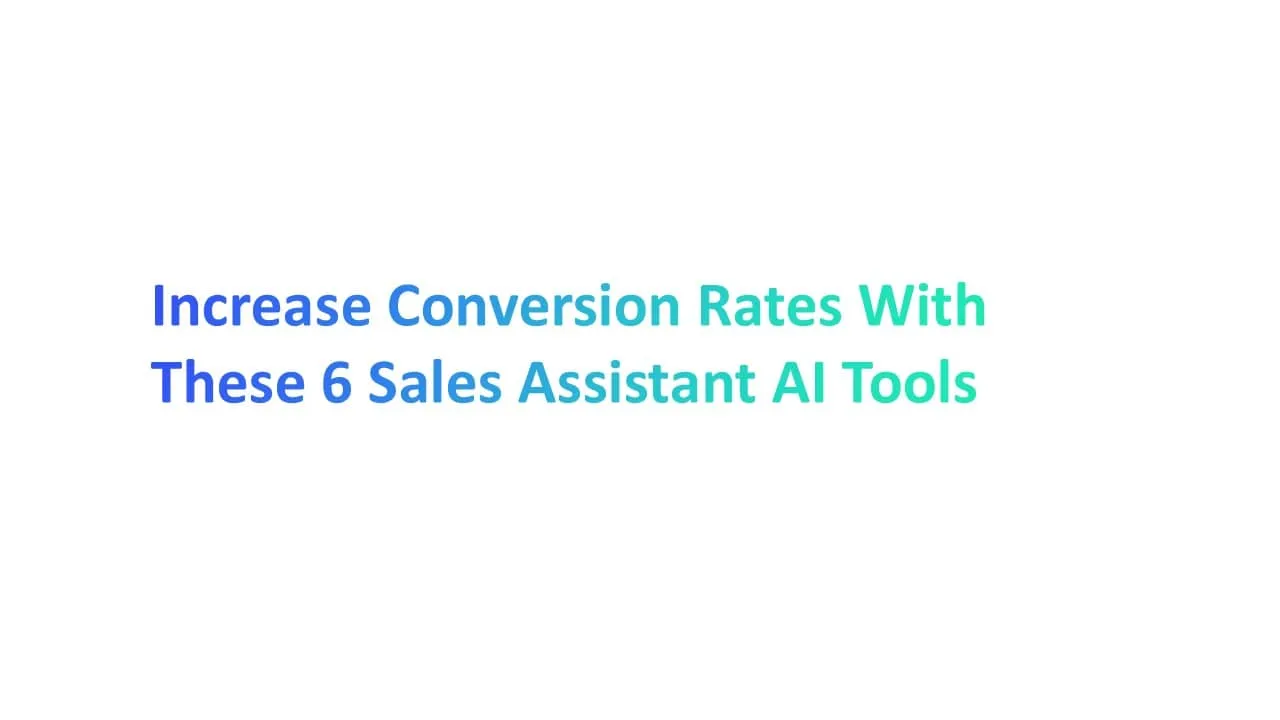



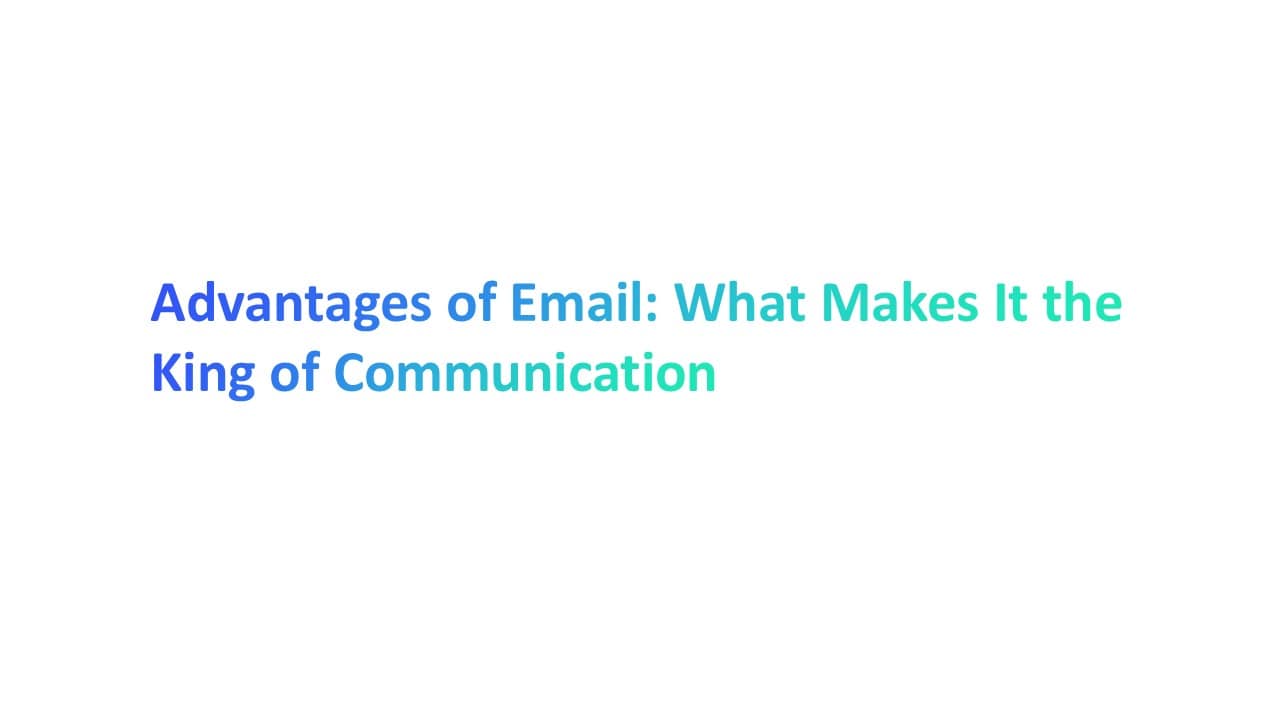

.webp)

